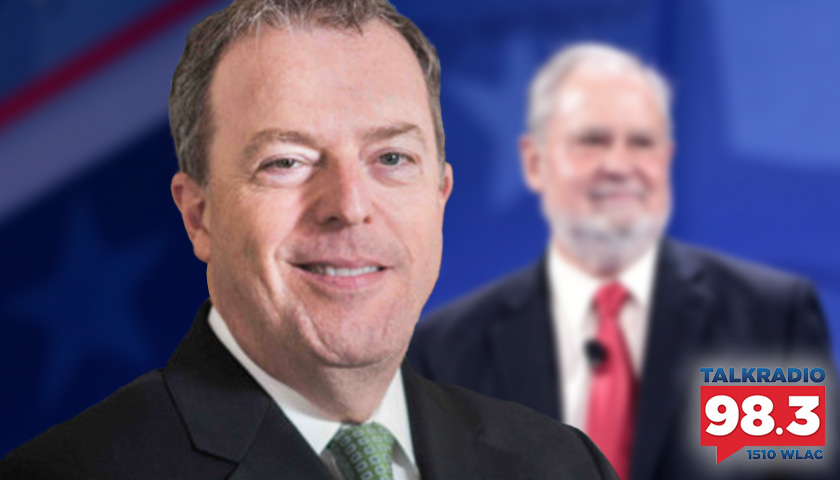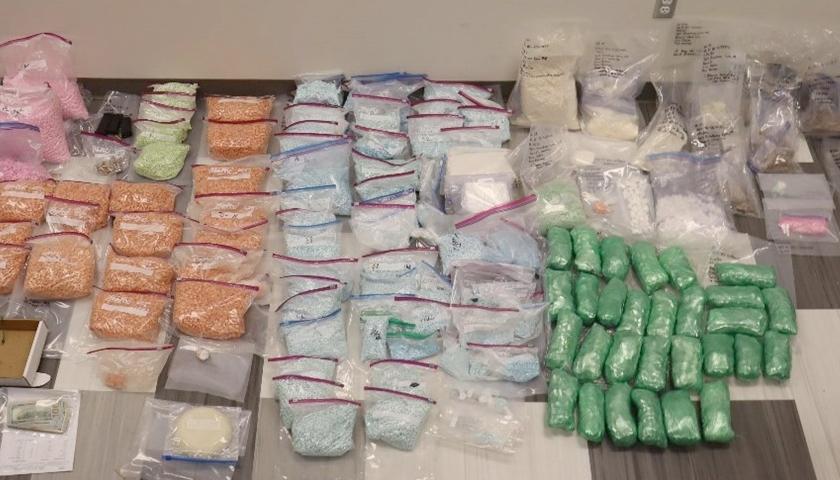Live from Music Row Monday morning on The Tennessee Star Report with Michael Patrick Leahy – broadcast on Nashville’s Talk Radio 98.3 and 1510 WLAC weekdays from 5:00 a.m. to 8:00 a.m. – host Leahy welcomed Dr. Matthew Spalding, vice president of Hillsdale College and the executive director of the 1776 Commission, to the newsmaker line to discuss recent comments made by the college president Larry Arnn that were taken out of context in regard to teachers.
Leahy: We welcome on our newsmaker line right now our friend Dr. Matthew Spaulding, who’s the VP of Washington Operations and dean of the Van Andel Graduate School of Government of Hillsdale College. Welcome, Matthew. Thanks for joining us today.
Spalding: Great, thank you for having me. Good to be with you.
Leahy: So the reason we have you on is because, I suppose we could say it crudely, this is like cleanup on aisle three. (Laughter) Right? Because the president of Hillsdale, who you report to, Larry Arnn, was taped saying things at an event Governor Lee was present in that were impolitic at best.
And I’ll give you one of the quotes. “The teachers are trained in the dumbest parts of the dumbest colleges in the country.” That was one of the quotes. Now, Governor Lee here has been working with Hillsdale to open some charter schools up.
And as supporters of charter schools, Crom Carmichael, who’s in-studio with me, and I, we kind of went, oh, gosh, that’s not going to help.
Talk to us a little bit about that, and do you think President Arnn ought to get up and apologize for saying it that way, or what are your thoughts on it?
Spalding: Well, there’s an immediate question and there’s a broader question. This is one of those times where I think we need to make sure that we don’t miss the forest for the trees.
The immediate one was that Dr. Arnn said something in private that he often says in public, but this time he had very little time.
It was too brief and abrupt, he did not lay out a fuller argument, which he has since then and he has on many occasions, which is that there’s a problem with a lot of these college education programs at bigger schools and professional schools.
That’s where a lot of the training goes on, and it’s all about methodology. And this is what gives rise to the fact that we have these big education bureaucracies.
There are more administrators in most school districts than there are teachers, and that’s probably true in Tennessee as well, as far as I know.
So part of it is if you take one line of a particular thing and you blow it up into a bigger question, I think what’s going on here. Because this is going on.
There are criticisms that I think are unfounded about the curriculum, which Hillsdale uses, and there are particular things here and there.
The larger thing is in the particular case of Tennessee, Hillsdale College, which has been doing this from the very beginning. Well before the Civil War, we’ve been teaching about American history and teaching and doing civics. We got involved in charter schools.
And we think that students and their parents need more options to get a better education for their students as an alternative to going to schools dominated by education bureaucracies in which teachers oftentimes can’t teach what they want to teach. We favor teachers.
We want great teachers. Great teachers should be able to teach a good curriculum and good books. That’s the alternative we want to bring to Tennessee and anywhere in the country.
And I think there are a lot of people, especially within the education bureaucracy, especially with those elites, and in politics, who don’t want that because they don’t want to lose the monopoly. So keep in mind the larger thing going on here.
Leahy: We agree with you on the larger thing because we live here in Tennessee and we support charter schools. But the reality is that a lot of the opposition to charter schools comes from rural counties where the teachers are a big part of the workforce.
There are also, there are a lot of teachers who are trying to do a good job in a bad system. The way that comment came out, it struck people as a condescending condemnation of all teachers, and it did not play well in Tennessee, my friend.
Spalding: One particular is it talks about where teachers are trained. The point is, these schools are what he was going after. Now, taken out of one line by itself, these things get blown out of proportion.
But I mean, the particular point he was making, which he makes on many occasions, is the places in colleges and universities that claim to control education, that’s the problem. It’s not teachers, it’s not parents and students. That’s where the core of education should occur, in the classroom, in that relationship between teachers, parents and students. I think it’s gotten things off track, it’s moved the conversation, and brought this to the fore.
But I think it’s more an annoying thing than anything else, because everything he says, every moment he speaks, it’s all out there. People can look things up in [educational journal] PRIMUS, other articles, and everything he says, this is not some sort of secret agenda. Look at the context of all the things he said about this. It’s very consistent. Was this too broad and short? Is this understood properly in a larger context of his arguments or in our argument about education? That’s what should be looked at.
Carmichael: Thanks for that explanation. I’m curious, how many schools does Hillsdale have now operating in the K1-2 arena?
Spalding: I think it’s in the upper 20s, maybe across that line, because we have some schools that use the curriculum, we have some schools that work directly with us in terms of teacher training and preparing headmasters and things. So there’s a range. But we are within the, say, roughly 30 [range], and growing beyond that.
Carmichael: And are these charter schools, are they private schools or a combination? What is the form of the schools?
Spalding: Sure, they’re charter schools. And the way, as you know, a charter school gets public money, that public money stays in the charter school, so it stays local. That money never comes to Hillsdale College.
We have a massive firewall, so that money never comes to us. What Hillsdale provides these charter schools is the curriculum, working with teachers, training headmasters, and helping them as much as that is all completely free and gratis to the school because we can’t take any of that public money.
The public money stays with the child at the school. That’s the definition of a charter school, which is why adding more charter schools is a great way to give these parents and students options they don’t have.
So it’s public in the sense that there is public money, but it’s not a public school in the sense that it can have its own curriculum and, as long as it meets certain standards, essentially operate in a different way than the public school.
Listen to the interview:
– – –
Tune in weekdays from 5:00 – 8:00 a.m. to the Tennessee Star Report with Michael Patrick Leahy on Talk Radio 98.3 FM WLAC 1510. Listen online at iHeart Radio.









I was one of the commenters on the original story, and most of us were in agreement with Dr. Arnn. I believe you should have mentioned that, fact, Mr. Leahy.